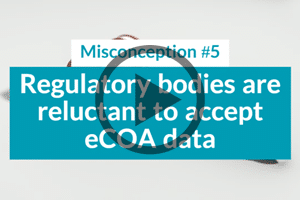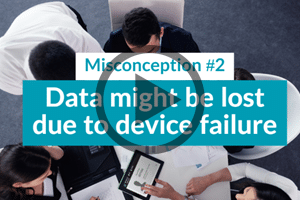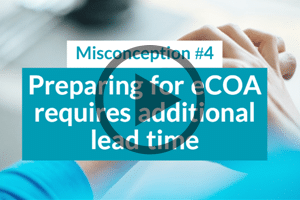There seems to be a lot of uncertainty here as people tend to think that electronic data acceptance by regulatory authorities will be a hurdle.
Technology evolves faster than regulatory bodies, whose pace to adapt to the digital era is sometimes slow.
The initial lack of communication from regulatory authorities as to their position towards eCOA data may partially explain the uncertainty of clinical trials stakeholders as to how regulatory bodies will accept eCOA data. However, these authorities have now made their stance clear and recommend the use of electronic solutions to collect clinical data endpoints. In recent years, the FDA has confirmed that the electronic capture of clinical source information is preferred to the paper-based collection1. These recommendations come with many other patient-centered approaches that get full support from the FDA2.
Discover more about misconceptions on eCOA barriers:
References
[1] Coons Sj, Eremenco S, lundy JJ, O’Donohae P, O’Gorman H, Milizia W, : Capturing patient -reported outcome (PRO) data electronically: the past, present and promise of ePRO measurement in clinical trials. Patient 2015, 8: 301-9.
[2] US Food and Drug Administration. Guidance for industry: patient-reported outcome measures: use in medical product development to support labeling claims. December 2009.


















